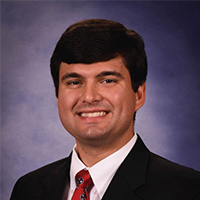Ten Mile Estate Planning Lawyer, Tennessee
Includes: Gift Taxation
Matthew Janson McClanahan
✓ VERIFIEDAccident & Injury, Estate Planning, Litigation, Business, Criminal
Matthew is a proud native-born Tennessean and the third generation to live on my family’s farm. His roots trace back to his ancestor and the first g... (more)
Paul Phillips
Criminal, Trusts, Estate Planning, Prosecution
Status: In Good Standing Licensed: 50 Years
John Cleveland
Federal Appellate Practice, Wills & Probate, Estate Planning, Family Law
Status: In Good Standing Licensed: 48 Years
John William Cleveland
Federal Appellate Practice, Wills & Probate, Estate Planning, Family Law
Status: In Good Standing Licensed: 48 Years
Chessia Cox Cox
Juvenile Law, Dispute Resolution, Estate Planning, Family Law
Status: In Good Standing Licensed: 17 Years
Chessia Allyn Cox
Juvenile Law, Dispute Resolution, Estate Planning, Family Law
Status: In Good Standing Licensed: 17 Years
William Hall Estes
Estate Planning, Natural Resources, Corporate, Reorganization
Status: In Good Standing Licensed: 14 Years
Sarah Emmalyne Kennedy
Education, Trusts, Estate Planning, Estate
Status: In Good Standing Licensed: 14 Years


